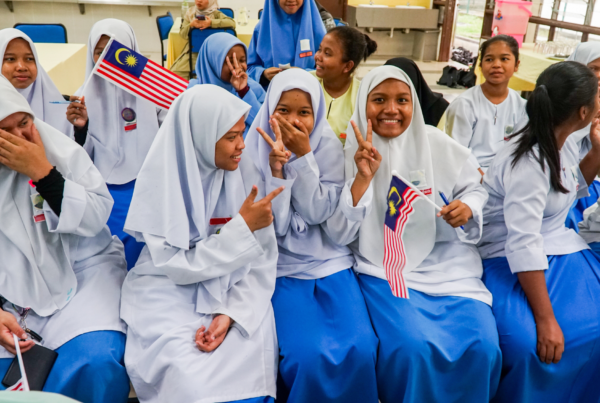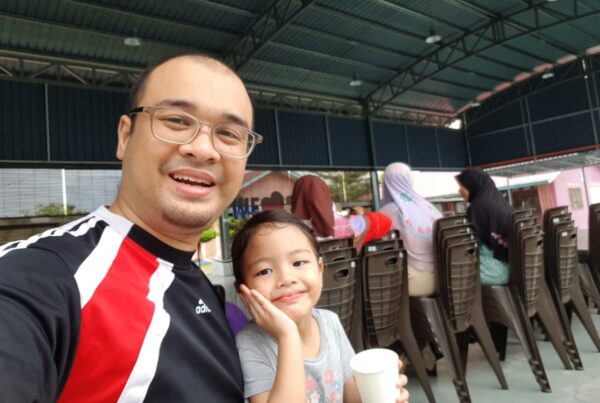What do you see as being the biggest obstacle to students receiving a quality education in Sarawak?
There are so many issues surrounding schools in Sarawak, the main one being the different social economic backgrounds of students that hinders equal access to quality education. I’ve seen so many students who come from disadvantaged family backgrounds who have to sacrifice their education just to help their families survive from a day-to-day basis. Some of these families would prefer their sons to work and bring additional income to the family or to marry off their daughters. Another obstacle which I feel should be addressed is the fact that certain schools are just disconnected from the outside world because of the geographical setting of the schools. Some schools take days to reach on foot (which is the only way to reach the school!), more than 5 hours of travelling on narrow and steep mountain roads or can only be reached after 2-3 boat rides. Teachers in these schools are at a disadvantage as well because they seldom have the opportunity to go out of their schools for professional development.
Based on your experience, why would teachers choose not to go to Sarawak? What challenges make it difficult to teach there?
The biggest complaint I hear from teachers who come here to teach is always about how rural and dilapidated some of the schools are. I remember during my first posting, I had to stay in old wooden quarters (it was more than 20 years old) which shook every single time anyone walked in the quarters. Another challenge would be the quality of living in the rural areas. Some do not have any supply of water and electricity is basically provided by a generator (which has to be switched off at certain hours every night!) In my previous school, water quality dominates our daily conversations. The quality leaves much to be desired. On good days, the water will be as ‘clear’ as a strong cup of tea. I’m not going to sugar-coat it and say that life is easy when it comes to teaching in rural Sarawak. However, there are many teachers (from the Peninsular as well as Sabah & Sarawak) who have fallen in love with life in rural Sarawak after they look past those challenges and they are doing magnificent things transforming the lives of our children in rural Sarawak. These are truly the unsung heroes. Once you look past the challenges of teaching in the rural areas, you will see that life really is beautiful and calm in these rural schools, and the community (students and their families) truly appreciate anyone who is willing to teach their people despite being placed in a challenging situation.
In your opinion, what can be done to resolve those issues? How can a programme like Teach For Malaysia be part of the solution?
TFM is part of a global network which I think will benefit the rural schools the most. These are the schools that are usually disconnected from the outside world so having TFM fellows who bring best practices from several sources would be refreshing to the teachers and students in these schools. It will not solve the deep-rooted issues immediately but at least it will rejuvenate the schools. It will be a start to something great!
What would your advice be to someone considering a teaching career in Sarawak specifically?
I will be completely honest and say that it is not going to be easy. You will miss the big city malls and civilisation, so to speak. You will spend a lot of your own money to prepare teaching aids and buy rewards just to motivate students who, at first, may not see why they need to be in school at all. You will be disconnected from the outside world for weeks and months. But it will be an experience that will enrich you. The joy and satisfaction of helping a student who could not even read or write a single sentence at first but could do so after a year, is something that money can’t buy. The most important thing is you must have the passion and the heart to do what is right for our students. I truly believe that a true educator will shine and do great things regardless of where they are. Our students deserve the best and if no one will take up the challenge to serve in Sarawak, then who will?




